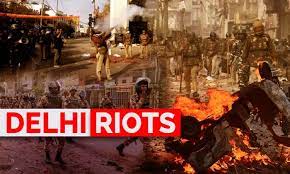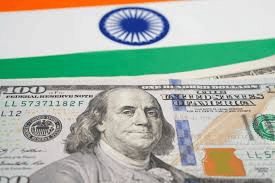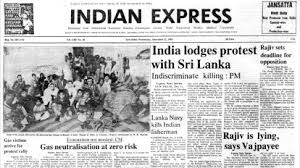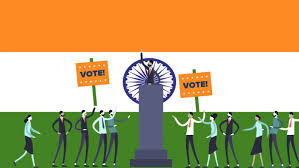
Court Orders Riot Case Retrial Amid Protests
Court Orders Riot Case Retrial Amid Protests and Public Debate
Riot Case – The announcement of a retrial in a riot case has reignited public debate over justice, accountability, and the handling of sensitive communal violence cases. Courts across India have faced increasing pressure to ensure transparency, fairness, and adherence to due process in trials that involve communal unrest. The retrial decision reflects both the judicial system’s willingness to revisit controversial verdicts and the challenges of delivering justice in cases burdened with political, social, and emotional weight.

This comprehensive article explores the context, the reasons behind the retrial, its legal significance, the reactions it has provoked, and the broader lessons it offers for the justice system.
Background: The Riot Case
The riot in question stemmed from violent clashes that broke out following political and communal tensions. The incident left dozens injured, several lives lost, and extensive property damage. For survivors and victims’ families, the case became a symbol of their quest for justice.
Initial investigations led to multiple arrests, with charges ranging from unlawful assembly and rioting to arson and attempted murder. However, the original trial faced criticism from human rights organizations, who alleged lapses in evidence collection, witness protection, and prosecutorial independence.
Why a Retrial Was Ordered
The court’s decision to order a retrial was based on multiple factors that undermined the integrity of the original proceedings.
- Procedural Irregularities – Allegations of evidence tampering, poor documentation, and inconsistent witness testimonies.
- Witness Intimidation – Reports of threats and coercion leading several key witnesses to turn hostile.
- Prosecutorial Failures – Accusations that the prosecution failed to present critical evidence effectively.
- Public Interest Litigation – Appeals filed by victims’ families and advocacy groups demanding judicial review.
By acknowledging these concerns, the court reaffirmed that justice must not only be done but also be seen to be done.
Legal Significance of a Retrial
A retrial is not a common remedy in Indian courts, as it essentially nullifies earlier proceedings and starts the process afresh. Its significance lies in:
- Rebuilding Public Trust – Demonstrating that the judiciary is willing to revisit questionable verdicts.
- Correcting Procedural Lapses – Giving both prosecution and defense a fair chance to present evidence.
- Setting Precedents – Reinforcing the principle that miscarriages of justice cannot be allowed to stand.
However, retrials are also complex and resource-intensive, often requiring the re-examination of large volumes of evidence and re-summoning of witnesses.
Public Reaction and Political Fallout
The retrial announcement has sparked strong reactions across different sections of society.
- Victims’ Families – For many, it offers renewed hope that justice may finally be served after years of disappointment.
- Civil Society Groups – Activists have welcomed the decision, framing it as a victory for accountability.
- Political Leaders – Reactions are divided, with some framing the retrial as necessary, while others allege it is politically motivated.
- General Public – Social media discussions reflect both optimism about judicial courage and skepticism about whether justice delayed is still justice denied.
Challenges Facing the Retrial
While the retrial raises hopes, several hurdles remain:
- Time and Resources – Rebuilding the case will demand significant judicial time and administrative support.
- Witness Fatigue – Witnesses may be unwilling or unable to testify again, especially under continued intimidation.
- Media Pressure – Intense coverage can influence public perception and indirectly affect proceedings.
- Political Influence – Ensuring independence in a case with high political stakes will be difficult.
Historical Context: Riot Trials in India
India has a long history of communal violence cases where justice has often been delayed or denied. From the 1984 anti-Sikh riots to the 2002 Gujarat riots, survivors have repeatedly faced uphill battles for accountability.
Retrials in riot cases are rare but not unprecedented. In some past cases, retrials have led to convictions that were earlier dismissed, proving their importance in correcting miscarriages of justice.
Expert Opinions
Legal and human rights experts emphasize the importance of this development.
Advocate Priya Menon, a constitutional lawyer, notes:
“A retrial is not about reopening old wounds but about ensuring that the wounds heal with justice. Without fairness, social trust in the judiciary collapses.”
Sociologist Dr. Rajiv Bhatia adds:
“Riot cases are never just about individuals; they are about society’s commitment to harmony. A retrial signals that accountability cannot be buried under political convenience.”
International Comparisons
Globally, retrials have been ordered in cases of political violence and human rights abuses:
- South Africa: Post-apartheid retrials of politically motivated crimes helped establish reconciliation.
- Bosnia: War crime retrials reinforced international legal principles.
- United States: Civil rights era retrials exposed systemic racism in past judicial decisions.
These examples show that retrials, while painful, often play a crucial role in healing national wounds.
What Lies Ahead
The retrial process will involve:
- Re-examining forensic evidence.
- Summoning old and new witnesses.
- Strengthening witness protection programs.
- Monitoring by higher courts to prevent procedural lapses.
Civil society and media will likely continue to track every stage closely. The outcome could influence broader reforms in how riot cases are investigated and tried in India.
Conclusion
The retrial of the riot case marks a pivotal moment for the Indian judiciary. It demonstrates the system’s willingness to confront its past shortcomings and deliver justice in cases that carry heavy social and political consequences.
For victims, it renews hope. For the public, it reaffirms the importance of accountability. For policymakers, it is a reminder that justice in riot cases requires not only legal rigor but also moral courage.
Ultimately, the retrial is not just about punishing the guilty but about restoring faith in the rule of law and ensuring that communities torn apart by violence can begin to heal.




